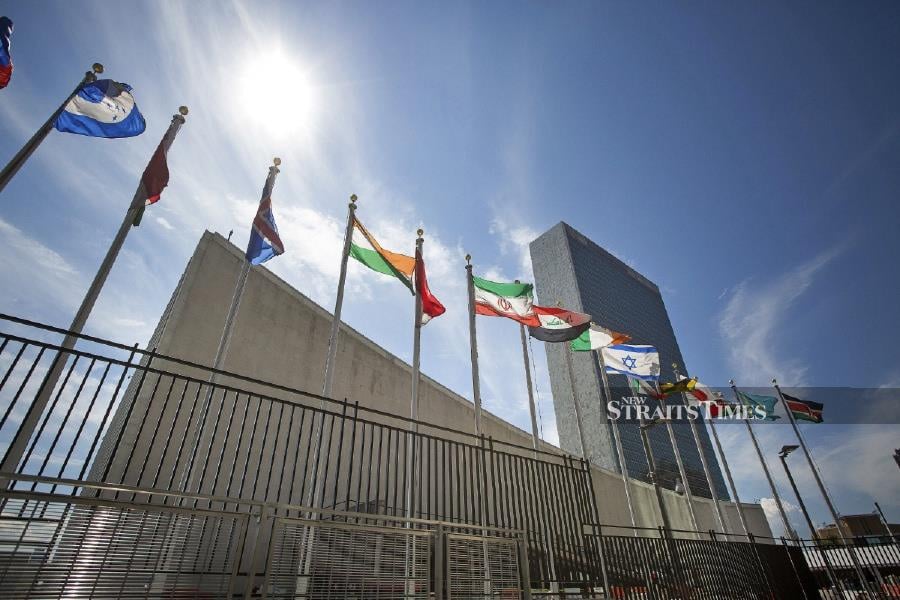ACHIEVING the Sustainable Development Goals (SDGs) should be a priority for the common people, not an abstract policy making exercise. The second half of September is normally a very busy period at the United Nations (UN) as global leaders gathers in New York City for the annual session of the General Assembly.
It is going to be unique for two other reasons. First, the UN celebrates its 75th anniversary and second the session will officially kick of the Decade of Action to achieve the Agenda 2030 that embeds the SDGs, the global framework to make our planet more just, more equal and more sustainable.
"The SDGs are a blueprint for beating poverty and hunger, confronting the climate crisis, achieving gender equality and much more, within the next ten years" declares António Guterres, the UN Secretary-General. On the 18th of September, the Decade of Action officially started with a special event called the SDGs Moment, defined by the UN as "curtain raiser" to the official program of the General Assembly, to assess where we are and reinforce the importance of achieving the goals.
The SDGs Momentum is itself part of the Global Goals Week, an initiative to ensure governments stick to their commitments in terms of actions to be undertaken in the years ahead. I am wondering how much these important global initiatives are relevant to the average people.
These is always a huge gap between glamorous events, even if held online and the reality on the ground where the vast majority of people, more concerned with their day to day lives, are detached from global level policy discussions like the ones now going on.
Malaysia, a regional powerhouse that achieved incredible economic prosperity and a relatively high level of wellbeing among its population in the last few decades, has a huge responsibility in paving the way for the entire South East Asia to achieve a more prosperous, equal and sustainable future.
As we know the ongoing pandemic is making even more urgent to invest energies and resources towards a more sustainable world. To be fair the year 2020 couldn't start in a better way for Malaysia as the Global Goals Summit 2020 was held between the 23rd and 25th of January in Kuala Lumpur.
It was a big signal that the country is really committed in this fight to achieve the SDGs. There is no doubt that recent programs announced by the government supporting the most disadvantaged groups in the country, the so called Bottom 40 or B40, are steps in the right directions but such actions stems from the urgency to deal with the devastating consequences Covid-19 is having on the most vulnerable.
It might be true that pandemic might have distracted the government from being more aggressive towards the SDGs to achieve the Agenda 2030.
I would like to see ideas sprouting up from the common people, from students, from schools and from small, medium and large corporations. For example, a global Youth SDGs Summit is, at the time of writing, being held and one of its highlights is a ChangeMaker Challenge, a one day hackathon to inspire ideas to reach the goals.
A hackathon can be a very intriguing thing for youth, a very smart way to involve and engage them and it could be easily replicated in smaller versions throughout the world. I am talking about partnerships where not for profits work with schools and universities, private corporations in which local governments, not only the states but also local units close to the people.
What we need in Malaysia and throughout the Asean Community is an effort to create momentum on the SDGs and sustain it throughout the years ahead. Certainly we need the government to partner with the states through a national strategy but any plans must enable local actors to unleash their energies and creativity unconstrained.
A simple city hall modeled gathering to talk about local problems held at neighborhood or village level is another way to talk about the SDGs. It is also a tradition already in place in many communities here. It is something doable and does not require resources. Students could lead and help with the organizations of such actions.
Achieving the SDGs requires a common front.
Unsophisticated and doable actions can make the difference and they can push the government to do more to ensure that the Agenda 2030 does not remain an abstract document but a platform for real change throughout Malaysia.
The author is the Co-Founder of ENGAGE and writes on social inclusion, youth development and regional integration as an engine to improve people's lives in Asia






